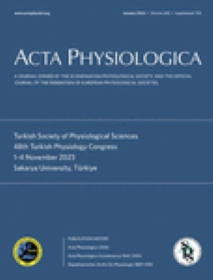Fam163a knockdown and mitochondrial stress in the arcuate nucleus of hypothalamus reduce AgRP neuron activity and differentially regulate mitochondrial dynamics in mice
Abstract
Aim
Mitochondria play key roles in neuronal activity, particularly in modulating agouti-related protein (AgRP) and proopiomelanocortin (POMC) neurons in the arcuate nucleus of the hypothalamus (ARC), which regulates food intake. FAM163A, a newly identified protein, is suggested to be part of the mitochondrial proteome, though its functions remain largely unknown. This study aimed to investigate the effects of Fam163a knockdown and mitochondrial dysfunction on food intake, AgRP neuron activity, and mitochondrial function in the hypothalamus.
Methods
Male C57BL/6 and AgRP-Cre mice received intracranial injections of either Fam163a shRNA, rotenone, or appropriate controls. Behavioral assessments included food intake, locomotor activity, and anxiety-like behaviors. qRT-PCR was used to quantify the expression of the genes related to food intake, mitochondrial biogenesis, dynamics, and oxidative stress. Blood glucose, serum insulin, and leptin levels were measured. Electrophysiological patch-clamp recordings were used to assess the AgRP neuronal activity.
Results
Fam163a knockdown in the ARC increased the cumulative food intake in short term (first 7 days) without altering the 25-day food intake and significantly increased the Pomc mRNA expression. Fam163a silencing significantly reduced leptin levels. Both Fam163a knockdown and rotenone significantly reduced the firing frequency of AgRP neurons. Neither Fam163a silencing nor rotenone altered locomotor or anxiety-like behaviors. Fam163a knockdown and rotenone differentially altered the expression of mitochondrial biogenesis-, mitophagy-, fusion-, and oxidative stress-related genes.
Conclusion
Hypothalamic FAM163A may play a role in modulating AgRP neuronal activity through regulating mitochondrial biogenesis, dynamics, and redox state. These findings provide insights into the role of FAM163A and mitochondrial stress in the central regulation of metabolism.


 求助内容:
求助内容: 应助结果提醒方式:
应助结果提醒方式:


